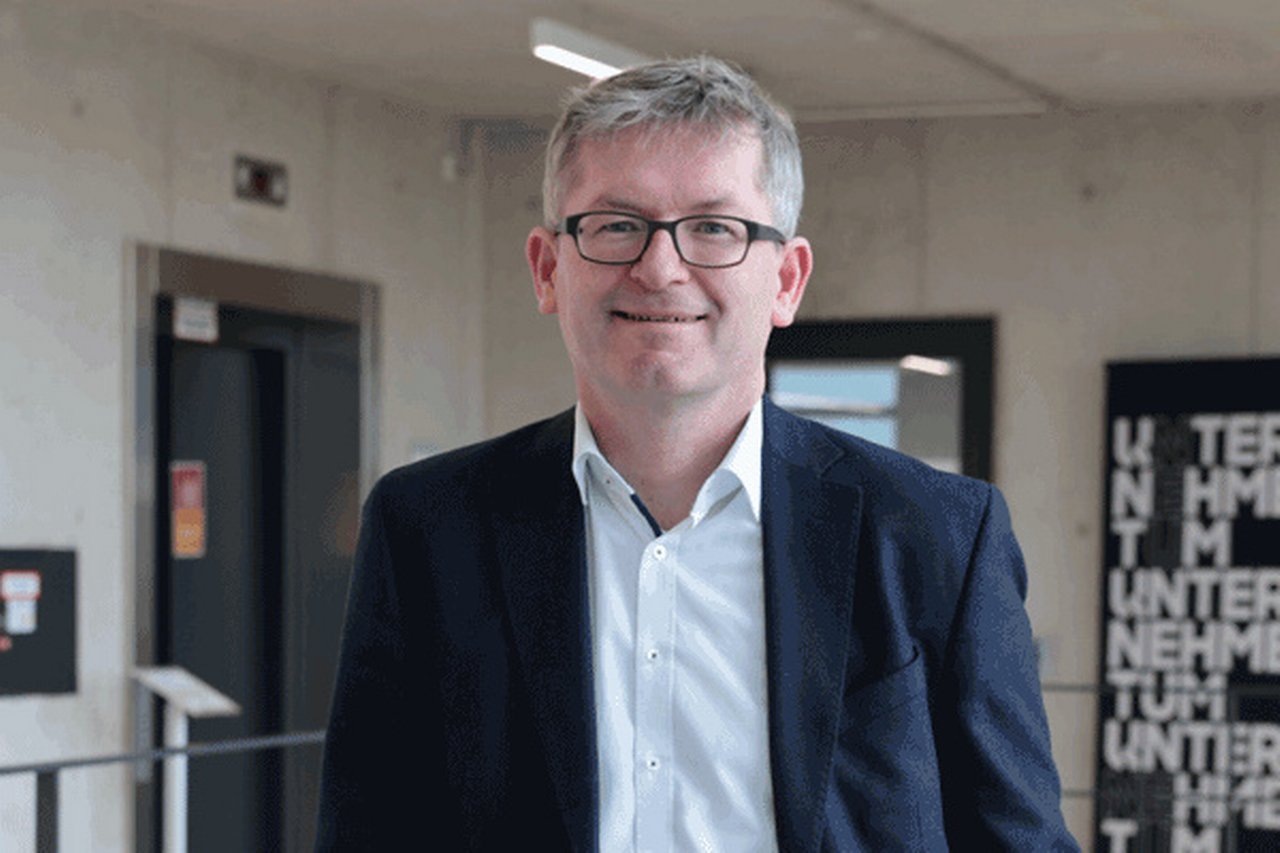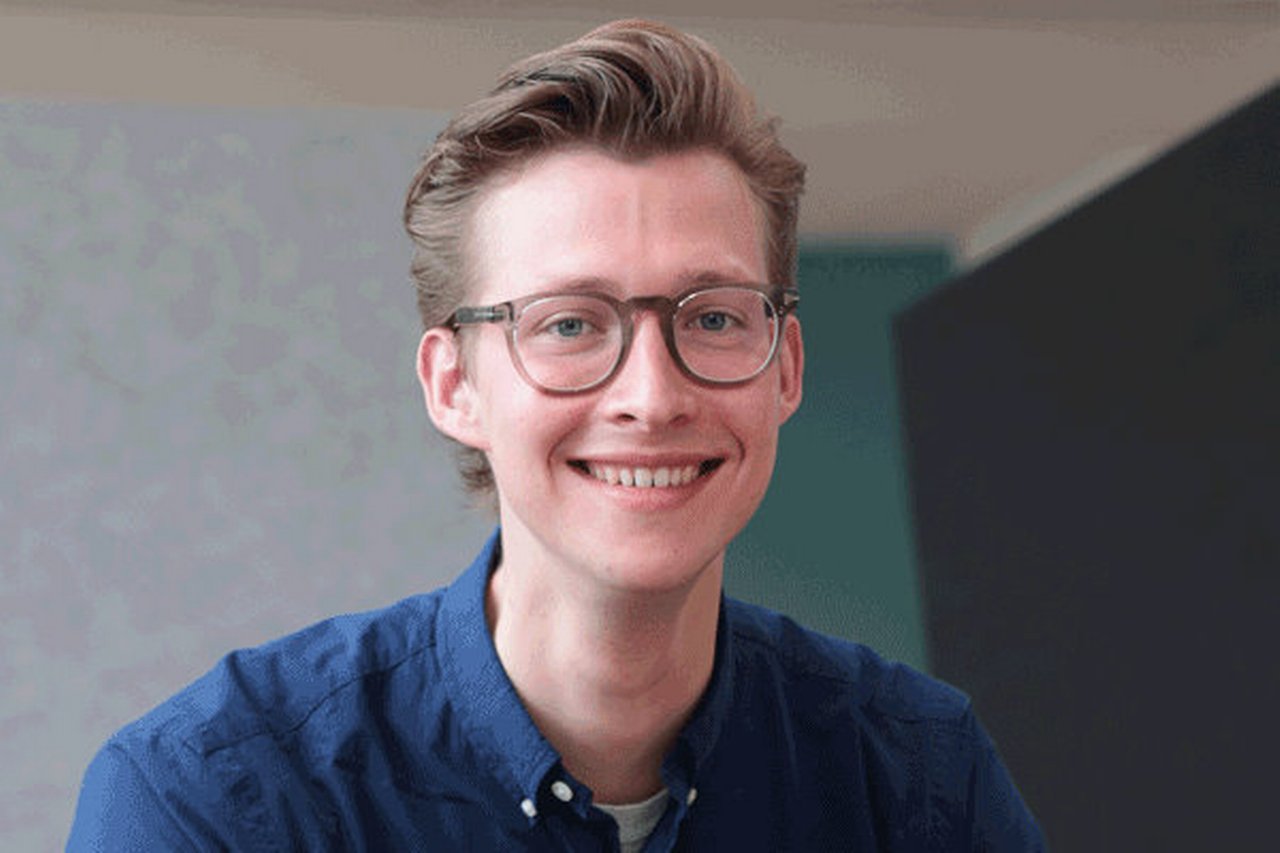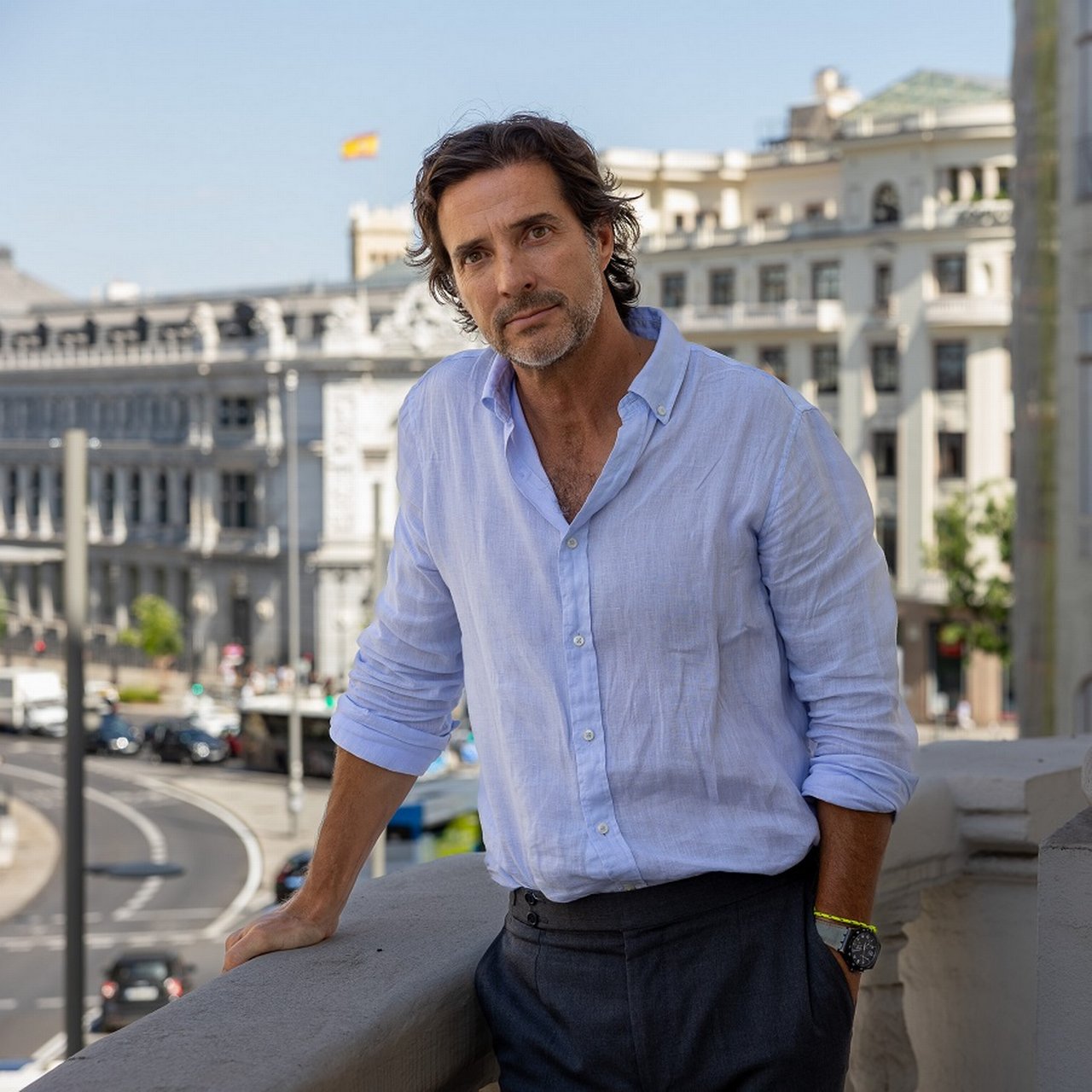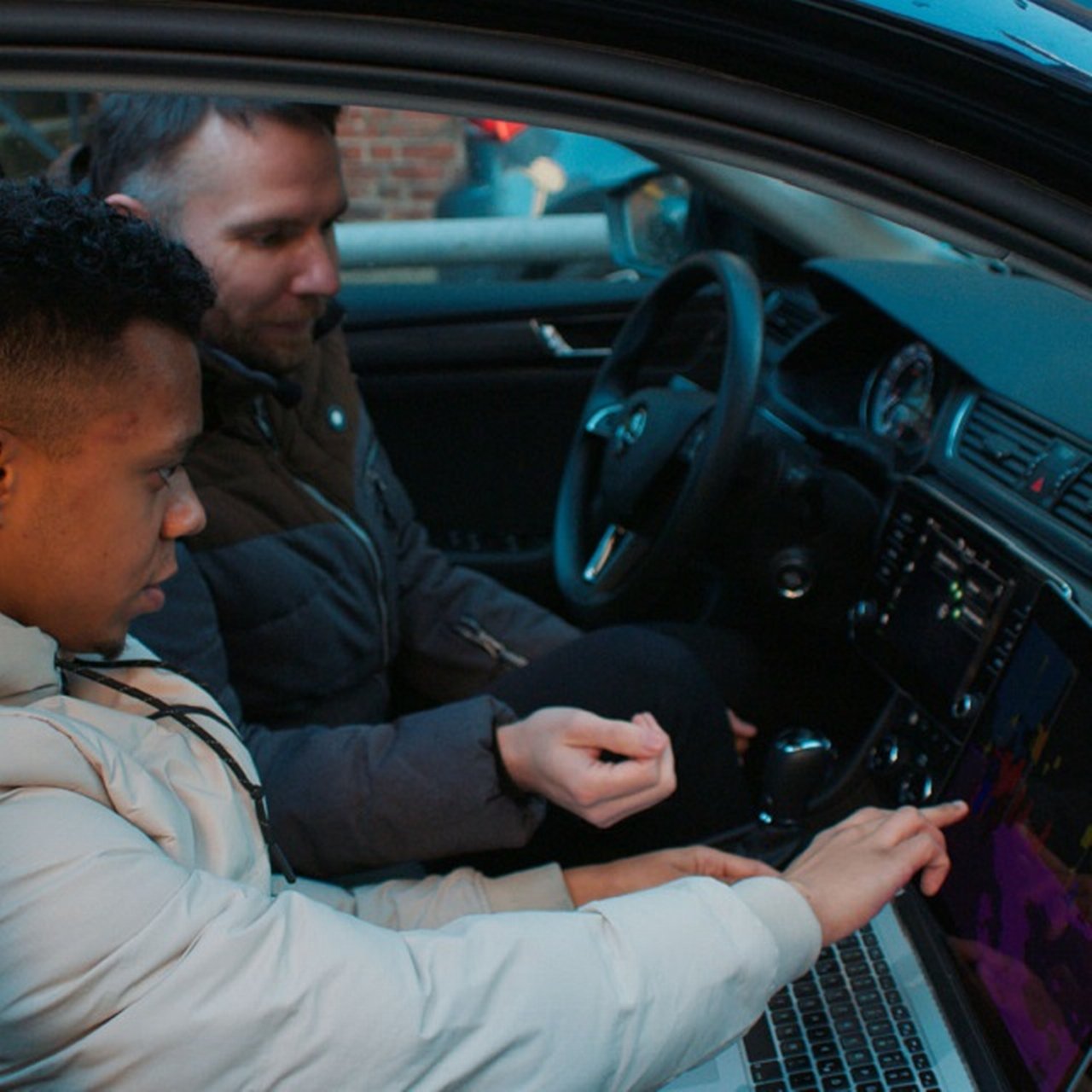“Founding a company is a team sport”
Inspired by the vibrant start-up scene at Stanford University, Helmut Schönenberger set up a start-up hub at the Technical University of Munich 22 years ago. With the support of local businesses, it became a huge success. Now the model is set to set a precedent in Europe.
It's an early morning at the beginning of April and we meet Professor Helmut Schönenberger, Founder and CEO of UnternehmerTUM's Start-up Campus in Munich. The site is what you would imagine a start-up center to be: workshops, which they call ‘makerspace’; large rooms with whiteboards, but also classic displays with. Young people scurry around in groups, chatting, drinking coffee.
Helmut Schönenberger is currently even busier than usual since the Financial Times named his start-up center "UnternehmerTUM" as a leader in Europe, everyone wants to know: how can the recipe for success from Munich be used quickly and successfully elsewhere.
Professor Schönenberger: What is the recipe for success in Munich?
From the very beginning, we have relied on a strong local network: from companies based in the region such as Airbus, BMW, and medium-sized companies that are very interested in innovation. In addition, there are venture capitalists as well as traditional banks. In the meantime, the successful founders from the early years are themselves mentors, supporters or even customers of the next generation of young start-ups. This network, the financing opportunities and the knowledge make us enormously strong.
How did it all start here at the Technical University of Munich (TUM) and where do you fit in?
I had the chance to go to Stanford as a young student of aerospace engineering and I was amazed at how many start-ups emerged from the vicinity of that university. So I made this the topic of my doctoral thesis, compared the conditions at TUM and Stanford and came to the conclusion: what they can do, we can do here in Munich, too.
And how did this theory become practice?
As is so often the case, the key lies in personal relationships. My mentor, Wolfgang Hermann, was the president of TUM at the time. He had good contacts with the entrepreneur Susanne Klatten. Both were very open-minded. They encouraged me to implement the idea of UnternehmerTUM and made me CEO. Susanne Klatten became Chairwoman of our Supervisory Board. She still supports us in this role today.
You compared Stanford and Munich. The US is considered a start-up Eldorado – can Europe keep up?
A lot has happened in Europe in recent years. Since 2018, there has been an increase in incentives and public funding programmes from the EU and in individual countries. And private investment and venture capital have also increased. In 2021 and 2022, European venture funds raised more money than ever before. In percentage terms, there was even more growth here than in the US.
However, the last year has been difficult for start-ups. While there were slumps in financing throughout Germany, we were nevertheless able to keep attracting investment at UnternehmerTUM: our start-ups raised a total of 2 billion US dollars.
If I were a young founder with a cool idea – what would I get at UnternehmerTUM that I wouldn't get elsewhere?
Three main things set us apart: we offer very intensive support for "our" founders – from the initial idea to the IPO. In more than 20 formats and programs, they learn how to develop prototypes, create business plans and what it means to be a CEO in an agile environment.
Second, there are many private and public supporters in our ecosystem. All of them give our start-ups something very specific: advice, experience, network, money – or they are in a customer relationship with our young entrepreneurs. Founding a company is above all: a team sport!
And last but not least, we are very active when it comes to new developments. We need to stay on top of the latest technologies and think about how we can integrate them into our programmes, connect with the leaders and open up new funding opportunities. We are looking in the direction of public funding, but we are also building on partners from the private sector, such as Deutsche Bank, which is now a sponsoring partner and contributes its know-how and international client network.
Europe is a large market. How can it be ensured that young companies can profit from that?
If we want to keep up with China and the US, we have to think European. There are great start-up centres in the vicinity of universities, such as DTU in Copenhagen or TU Wien in Austria.
In order to leverage the potential of such hubs, we are currently creating "Rise Europe" a network of like-minded people, a network of European start-up ecosystems. Similar to here in Munich, we want to bring together universities, family offices and large companies at the individual locations. Above all, however, it is important that we reduce the hurdles for young companies and make it easier for them to access the market in individual countries. And we want to raise venture capital at the European level.
The aim is to contribute to Europe's technological independence in order to remain competitive. We need to use our world-class knowledge to build technology leaders – especially in the areas of AI, renewable energy and electric vehicles.
If you were 18 years old today, what would appeal to you most as a founder?
Definitely a company that contributes to global sustainability – presumably in the field of nuclear fusion.

Deutsche Bank and UnternehmerTUM
With UnternehmerTUM, Deutsche Bank is supporting an ecosystem for technology start-ups that is unique in Europe.
Young founders and students not only receive a broad know-how about founding a company in more than 20 different programs – there is also a versatile and mature network available, ranging from public sponsors, DAX corporations, medium-sized companies to venture capital providers. UnternehmerTUM has been supporting tech start-ups for 22 years.
Every year, around 50,000 people take advantage of the offers.
"As a globally positioned universal bank, through our partnership with UnternehmerTUM, we can support young technology companies in all phases of their development: in raising capital, with our network and, last but not least, with our holistic financial advice. At the same time, our partnership with UnternehmerTUM underscores our ambition to become the leading bank in the technology sector in our home market”, explains Milos Spiridonovic, who advises technology clients at Deutsche Bank.
Recommended content
No life in the cabin – the future with driverless trucks No life in the cabin – the future with driverless trucks
Hendrik Kramer is co-founder and CEO of FERNRIDE.
He describes how the Munich-based start-up is setting out to revolutionise logistics.
Responsible Growth | Video Story
Sustainability is always in fashion Sustainability is always in fashion
Spanish label Ecoalf is a pioneer in the industry, showing how stylish urban fashion can be both sustainable and profitable.
Entrepreneurial Success | Video Story
“Nickel doesn’t grow back” “Nickel doesn’t grow back”
Recycling metal scrap is by definition a sustainable business model but recycling alone does not guarantee resilience, as Cronimet has learned.
Digital Disruption | Video Story
How AI helps autonomous driving achieve a breakthrough Autonomous driving – breakthrough thanks to AI?
Autonomous driving is a big hope for the future, but accidents still cause concern. The start-up Deep Safety wants to make autonomous vehicles safe.





